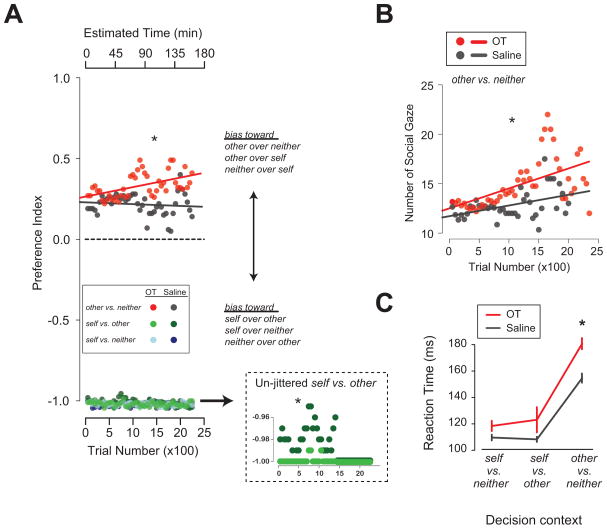Figure 2.
OT promotes social motivation in rhesus macaques. A. Choice preference index following inhaled OT (red) or saline (gray) administration for rewards delivered to: other (recipient monkey) versus (vs.) neither, self (actor) vs. other, and self vs. neither in the social reward-allocation task. Data points from self vs. other and self vs. neither are jittered on the left plot for visibility. The inset shows unjittered data from self vs. other trials. *, P < 0.05, Welch two-sample t test. B. Number of gaze shifts made to the recipient monkey after reward delivery over the course of each session on other vs. neither trials. *, P < 0.05, Welch two-sample t test. C. OT selectively increases the decision deliberation time in the other vs. neither context (choosing to deliver juice rewards to other or no one) in which actor rhesus monkeys show a preference for delivering juice rewards to another monkey. *, P < 0.05, Welch two-sample t test. [A – C adapted from: Chang, S.W.C., Barter, J.W., Ebitz, R.B., Watson, K.K., and Platt, M.L. (2012). Inhaled oxytocin amplifies both vicarious reinforcement and self reinforcement in rhesus macaques (Macaca mulatta). Proc. Natl. Acad. Sci. 109, 959–964, Copyright (2012) National Academy of Sciences, U.S.A.]

